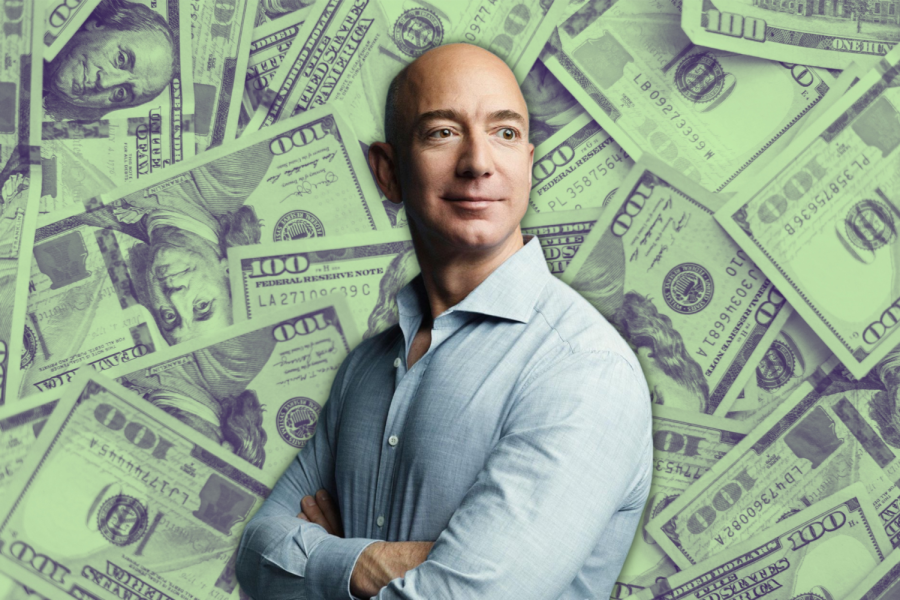Billionaires Are Society’s Big Bad
According to a Forbes evaluation from April 2022, there are 2,668 billionaires on the planet. These billionaires, collectively, have amassed nearly $13 trillion globally. As the article explains, western countries, especially the United States, are seeing a rise in the number of billionaires from year to year.
Thankfully, the depths of Hell are an infinite abyss.
To put it simply, there is no ethical way for someone to become a billionaire. In fact, this goes beyond just billionaires, but to any figure with notable amounts of wealth as that wealth is generated through capitalist production.
Let’s first examine how such wealth is accumulated. Capitalist structure demands that every individual try to accumulate as much wealth as possible. Using an example of a restaurant, let’s examine how this wealth accumulation is structured in modern capitalist society.
For this argument, let’s say that the restaurant sells sandwiches. The cost of producing the sandwich (gathering the necessary ingredients of one sandwich, not counting the already-spent-and-recovered cost of kitchen equipment) is around $1. This restaurant sells each sandwich for $10. With every sandwich sold, the restaurant makes $9 of profit. Every hour, one employee makes 15 sandwiches. The restaurant sells these sandwiches and generates a profit of $135 in a single hour. Assuming that one employee makes the United States minimum wage, the worker receives only $7.25 despite producing $135 worth of labor. The remaining $127.75 is paid to the restaurant owner who produced virtually no labor in the generation of that money.
This is an incredibly reductive and basic summary of the capitalist system, but it is the baseline function that operates at a global scale in every industry. Billionaires accumulate their wealth through the labor of their employees. There is a direct correlation between the success of billionaires and the wealthy and the misfortune of the working class. It’s an old Marx adage that the accumulation of wealth globally will only lead to the concentration of that wealth in fewer and fewer hands. The adage is only proven stronger as time goes on.
In 2020, the Economic Policy Institute found that CEO pay has increased by 1,322% since 1978. The report also found an incredibly high CEO-to-worker pay ratio; for every dollar that a worker makes, their CEO makes $351.
Earlier this year, Amazon raised wages for warehouse workers and delivery drivers to $19 per hour. Compare this to Jeff Bezos, who, when he was CEO in 2019, was calculated to make roughly $9 million per hour. An Amazon laborer would have to work for 24 hours consecutively for 68 years to make what Bezos made in a single hour.
For sake of brevity, I don’t even have the space to discuss how billionaires perpetuate global violence, imperialism and colonialism as a system for wealth accumulation.
We must also examine the social responsibilities assigned to billionaires. We assign responsibility to those in places of governmental power to provide assistance to those that they preside over. In the same culture, why do we not force these kinds of responsibilities on billionaires in a world where an excess in wealth is equivalent to an excess in power?
Analysis from the United Nations’ World Food Program USA (WFP USA) concludes that “[w]e need $40 billion dollars per year to feed all of the world’s hungry people and end global hunger by 2030.” With 2030 merely eight years away, this means that only $320 billion is needed. While this is a massive number, it’s only a mere 2% of the total wealth accumulated by the 2,668 billionaires. If we believe that there is any level of social responsibility expected from the most powerful people on the planet, how do we justify the fact that a small dip into global wealth would solve a major global issue and, yet, the issue continues to exist?
The conclusion of the WFP USA analysis insists that, through little contribution from every individual on the planet, ending global hunger is an achievable goal. It alleviates the responsibility from those wealthy enough to fix the problem to the individual working-class citizen, implicitly suggesting that we, despite being in significantly lower positions of power and wealth, have a greater responsibility to help global communities than those with the realistic means to actually do so.
The perpetuation of billionaires, of wealth accumulation, can only exclusively exist alongside the narrative that billionaires have less social responsibility than the average American citizen. As the number of billionaires grows each year, the narrative grows stronger.
Think, for example, about the ways that issues like education and healthcare are politicized in the United States. While social outcry from more progressive electorates calls for funds to be pulled from war-profiting defense industries or from increased taxes of wealthy Americans and channeled into social services, the political solution established and repeated each year is to increase taxes for American citizens whose wealth is virtually nonexistent compared to the 1%.
But how do we discuss those billionaires who have taken it upon themselves to share their wealth? What about charity? How do we morally qualify those billionaires who, with their massive concentration of wealth, have dedicated a portion of that wealth to underserved populations and social, political or environmental issues across the globe?
Charity is the bare minimum. It is not a moral success that these billionaires participate in the bare minimum. In fact, the concept of charity, nestled within the global neoliberal structures, only continues to strengthen the foundations of capitalism, especially as it forces impoverished nations and global citizens to be fed from the hands of capitalists.
Beyond making the wealthy feel better about themselves and giving the unwealthy a reason to defend those who continue to amass capital, charity also serves as an ideological tool to convince the working masses that capitalism is a successful global system.
Charity lends itself to a Randian fantasy that wealth is generated morally and those who are able to amass billions of dollars within their lifetimes are paragons of virtue willing to spend their money on those less fortunate. With this as a guiding mindset, it leads the way for the abolition of social services and collective action in favor of an imagined trickle-down effect from wealthy individuals at the top to those at the bottom of the economic food chain.
The truth is, billionaires are simply not that charitable.
Not only is the accumulation of wealth (especially to the point of billionaire-ship) unethical and theft, but the billionaires that exist on the planet have shown themselves to be more akin to economic parasites than any kind of benevolent force.
Sebastian Diaz, FCRH ’24, is a film and television and journalism major from Chapel Hill, N.C.

Sebastian Diaz is a senior from Chapel Hill, N. C. who is double majoring in journalism and film. After starting as a news reporter for The Fordham Ram...










































































































































































































